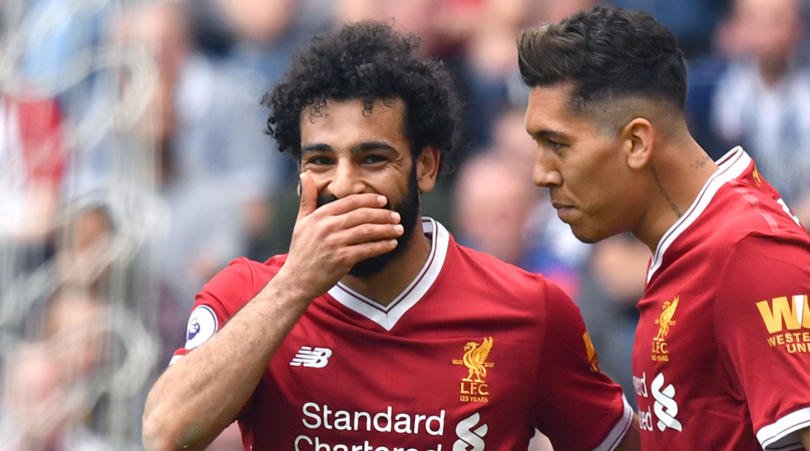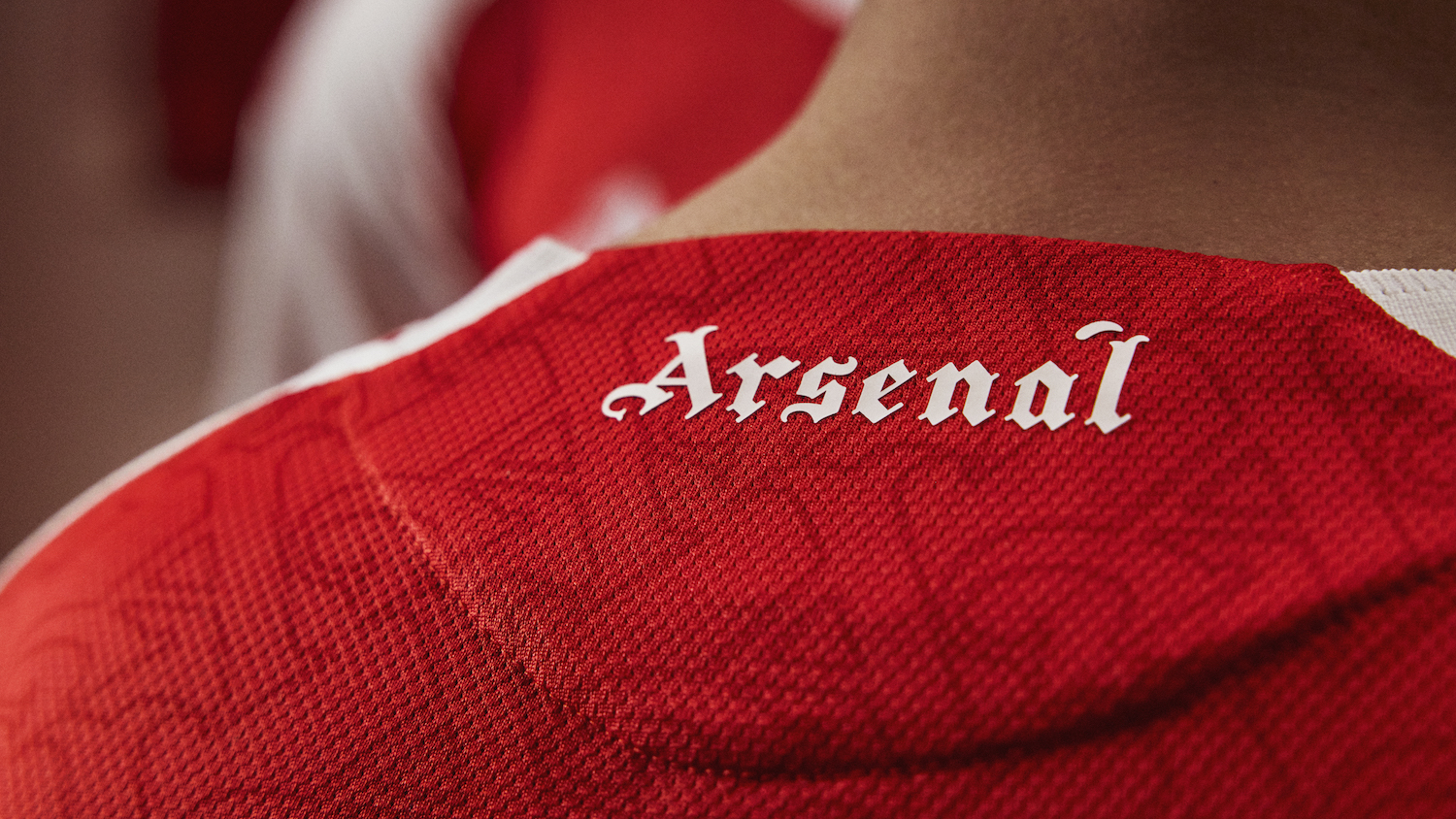Why Liverpool against Real Madrid is European football’s ultimate clash of styles
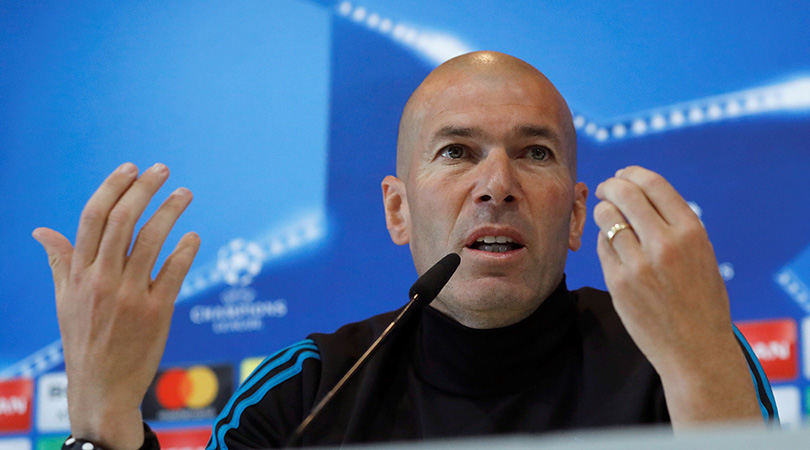
Neither club would much like to admit it, but as they prepare for Saturday’s showdown, Liverpool and Real Madrid may have more in common than you might think. Both finished their domestic season as a speck in the rearview mirror of the title winners: Liverpool 25 points off top spot; Madrid 17.
Both sides are led by an irrepressible goalscorer, the red carpet laid out for him by a workhorse No.9. Both boast a charismatic manager who has unified a fractious club. But most of all, both clubs place a special importance on their adventures in the European Cup.
As Toni Kroos said earlier this season: “The European Cup releases special powers in Real Madrid.” If that sounds a bit melodramatic, cast an eye over the list of recent winners. With three victories in four seasons, Real Madrid put the title in entitlement.
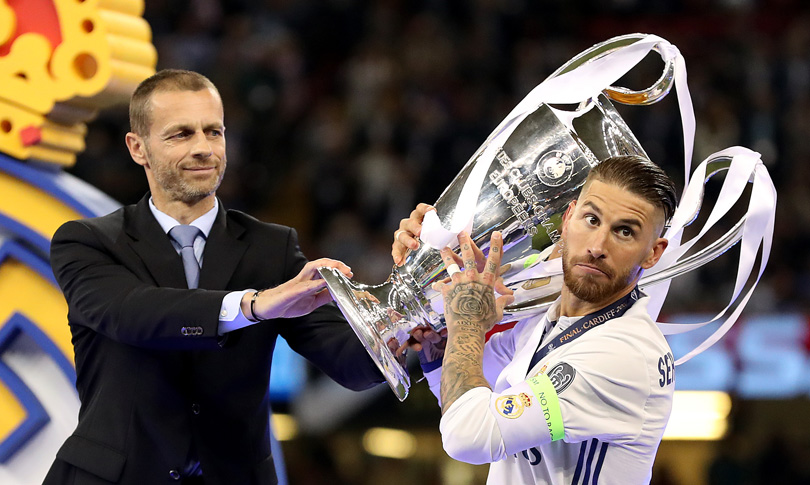
Liverpool also believe they possess some mystical X-factor when it comes to Europe, and their freewheeling run to the final suggests they might be right. On Merseyside, too, the echoes of recent history – a fearless young team, a cult hero manager, a deafening dethroning of England’s nouveau riche and a long eastward pilgrimage to the final – are hard to ignore. Both sets of fans will, for good reason, see truth in the idea that their club is fated to win on Saturday.
Differing identities
However, that’s where the similarities end. Because although this year’s finalists share certain parallels, it’s also difficult to imagine two top sides whose core identities are any more different.
Liverpool is a city that defines itself against the establishment across the rest of the country, not least the capital. It’s a place where the accent is proudly thick, where Labour voters outnumber Conservatives by 10 to one, and where an instinctive distrust of central government always simmers. As Prince Harry and Meghan Markle tied the knot last weekend, one city-centre bar on Merseyside was busy throwing a “F**k the Royals” party.
The best features, fun and footballing quizzes, straight to your inbox every week.
“The People’s Republic of Liverpool,” reads one long-standing banner on the Kop. “We’re not English, we are Scouse,” says another. The team, too, have always been at their strongest when they harness this us-against-them belligerence. The current side is managed by a German, led by an Egyptian and captained by a Wearsider. Yet there’s something singularly Liverpudlian in their combative, all-or-nothing playing style and the relish they take in facing down the grandest opposition.
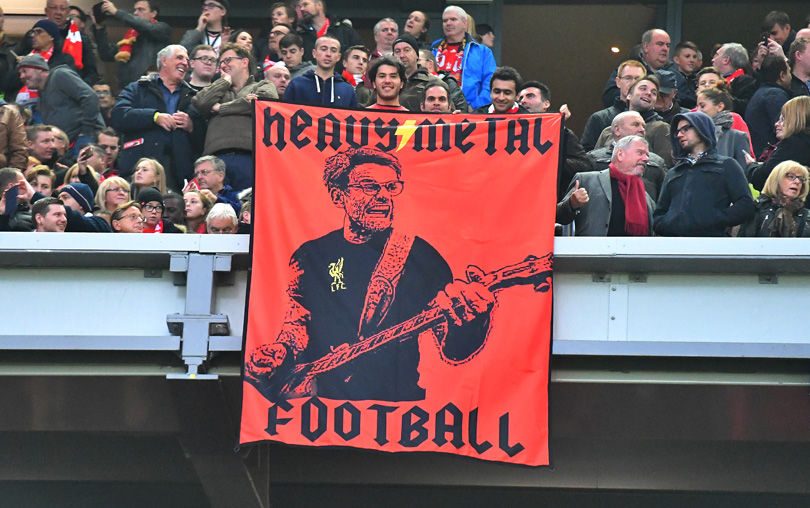
Jurgen Klopp is the perfect figurehead for a club whose finest victories have come against the odds, and indeed his entire project at Anfield has been to fine-tune the idea of Liverpool as a team fighting the power; a lone swordsman up against a galloping army. It's worked, too: his greatest trick has been to create conditions where a side with a globally revered coach, a £75m centre-back and Europe’s best new attacker still manages to give the impression of a Dirty Dozen-style band of grizzled underdogs.
Royal Madrid
Madrid’s image, on the other hand, is of imperious triumph and regal expectancy. They are based in the capital, slap-bang in the centre of the country. Their main rivals are Atletico, the city’s plucky upstarts, and Barcelona, where separatist sentiment smoulders.
Real represent the opposite of both clubs. In knife-edge recent elections, Madrid voters largely favoured keeping the right-wing People’s Party in power, and to many los Blancos have always been synonymous with the establishment. As former Barcelona manager Louis van Gaal (below) once said: “Franco was the boss and he was in Madrid; central government was always in favour of Madrid. European champions because of Franco.”
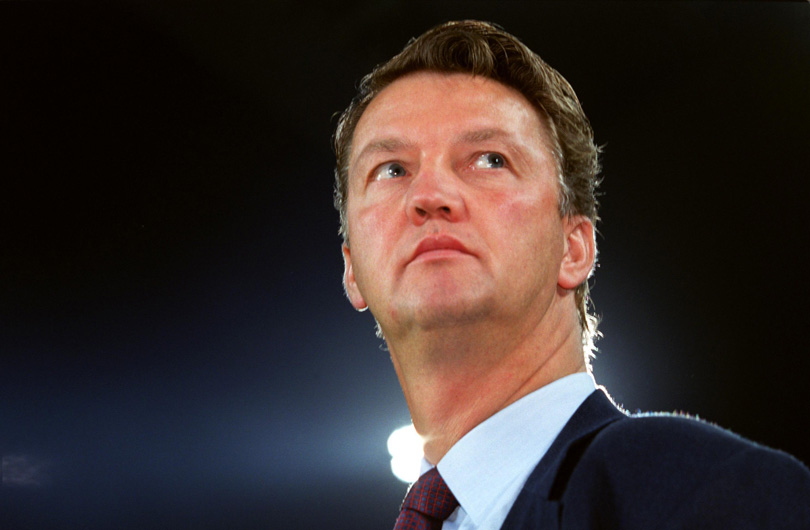
The truth is a shade hazier than that, but what’s certain is that the role of old-guard authority figure is one Real Madrid have wholly embraced. Their purpose, as far as they see it, is to dominate, win silverware, and their trophy cabinet suggests this is no delusion. “It was never going to happen to us like it did to Barcelona,” said Marcelo in the week when their rivals capitulated against Roma and they crept past Juventus. “Because we are Real Madrid.”
The embodiment of Real
No player embodies this mentality better than Cristiano Ronaldo, a man whose default settling is haughty disdain, and whose iron belief in his own brilliance has become something of a self-fulfilling prophecy. So much of his greatness is due to the absence of a single shred of self-doubt.
The same applies to his team as a whole, and that’s rarely been more apparent than in their journey to this year’s final, where performances have been shaky. When the decisive moments have arrived, however, conviction has been absolute. Some players would have been unnerved by giving up a three-goal lead at home against Italy’s serial champions Juventus; Ronaldo merely saw it as a means of making his winner all the more theatrical.
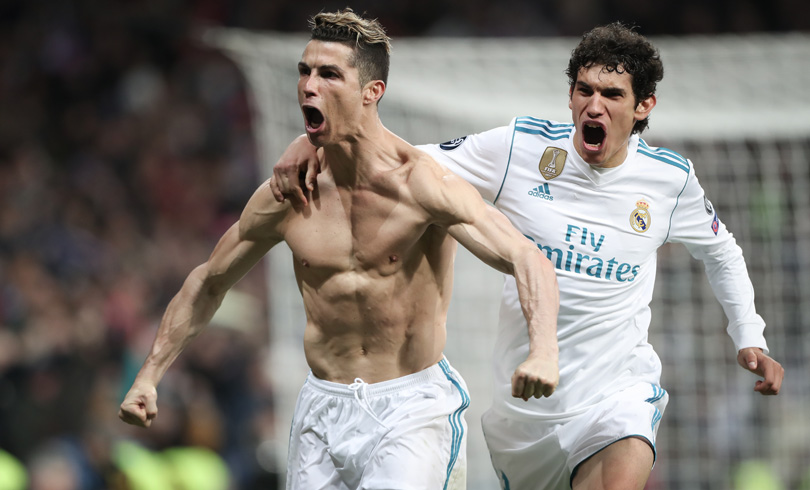
Against Bayern Munich in the semi-finals, Real were outplayed home and away, yet somehow their advancement never seemed in doubt. When the final whistle went, out came a batch of T-shirts that had been printed in advance: “All out for number 13.”
Liverpool’s free-scoring form in the knockout ties – 17 goals in six games, at least five put past each opponent – has them hitting the final straight in full sprint. Madrid, on the other hand, are stumbling badly. Yet Ronaldo & Co. will fully expect to lift the trophy. As one journalist wrote in El Mundo Deportivo: “Madrid are virtual winners already. Why? Because Liverpool will be crushed by Madrid’s legend.”
Few people have helped shape that legend more than Zinedine Zidane, whose volley in the 2002 Champions League Final remains one of football’s iconic goals. He and his counterpart in Kiev make for a fascinating joint case study: Zidane was been parachuted straight into a top job; Klopp worked his way up from Germany’s second tier. Zidane’s coaching qualities are a thing of vague mystery; Klopp’s are there for all to see. Zidane can’t stop winning finals; Klopp can’t stop losing them.
Their public personas could not be more different – one a cackling uncle; the other a strong, silent type – and yet both have used them to restore harmony and purpose to their clubs.
Above all else, Saturday’s game will be an enthralling clash of mindsets. Overlords against underdogs. Dominion against derring-do. The trophy’s stately safeguarders against a side planning a smash-and-grab heist. Liverpool believe that they can beat anyone on their day. Real Madrid are convinced that even on an off-day, victory is inevitable.
So far, both have been proved right. This time something’s got to give.
 Join The Club
Join The Club





